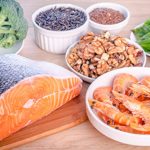
Some people might be prone to low back pain because of specific cells contained in their spinal disks, a new study suggests. The research could explain why only certain people develop back pain due to the degeneration of their spinal discs, which are jelly-filled spacers that act as shock absorbers between the small bones of the vertebrae. “We’ve identified for the first time particular cells that could be the key to understanding disk pain,” said senior study author Dmitriy Sheyn, a research scientist in the Board of Governors Regenerative Medicine Institute at Cedars-Sinai Medical Center in Los Angeles. “Learning more about how these cells work could lead to the eventual discovery of new treatment options,” Sheyn added in a Cedars Sinai news release. About 40% of adults experience low back pain due to degenerating disks in the spine, but up to now it’s not been clear exactly why the disks become painful. The jelly in spinal disks tends to dry out and degenerate as people age, but that doesn’t automatically trigger back pain, the researchers noted. “This is because the inner jelly-like layers of the disks contain no nerve endings,” Sheyn said. “But sometimes, when disks degenerate, nerve endings from the surrounding tissues invade the disk, and we believe this causes pain.” For this study, researchers first compared spinal disks from patients with low back… read on > read on >


















